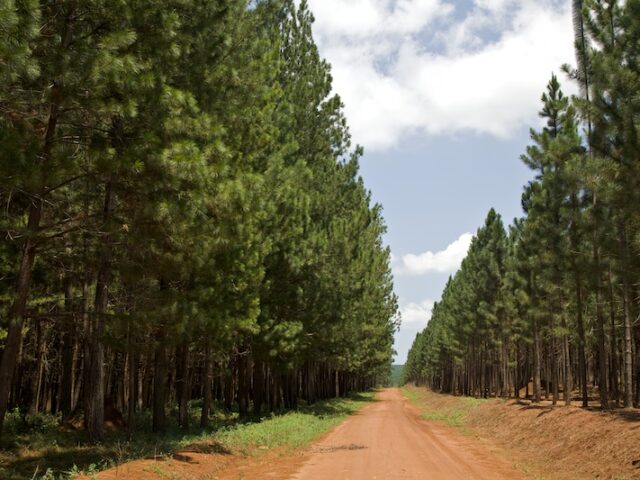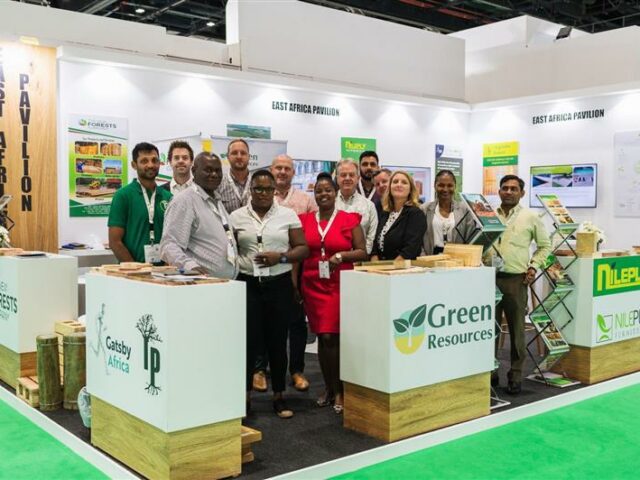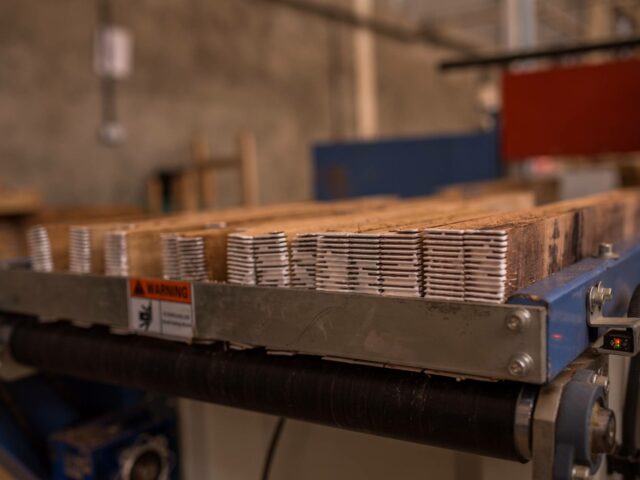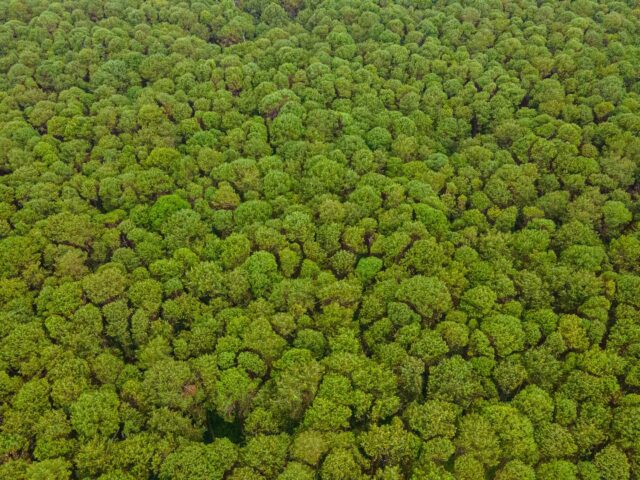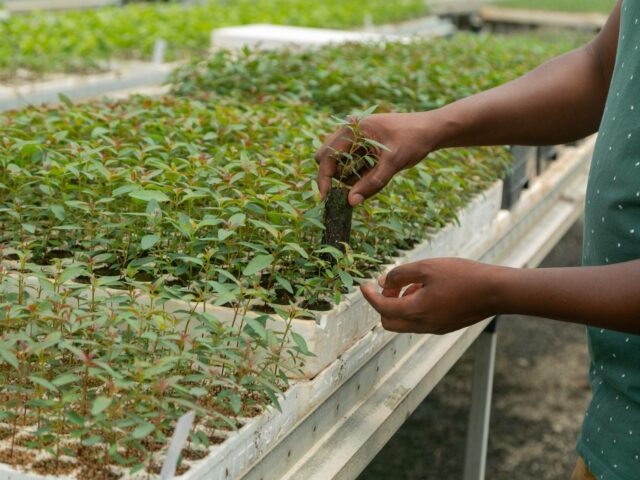Sowing the seeds for a greener tomorrow
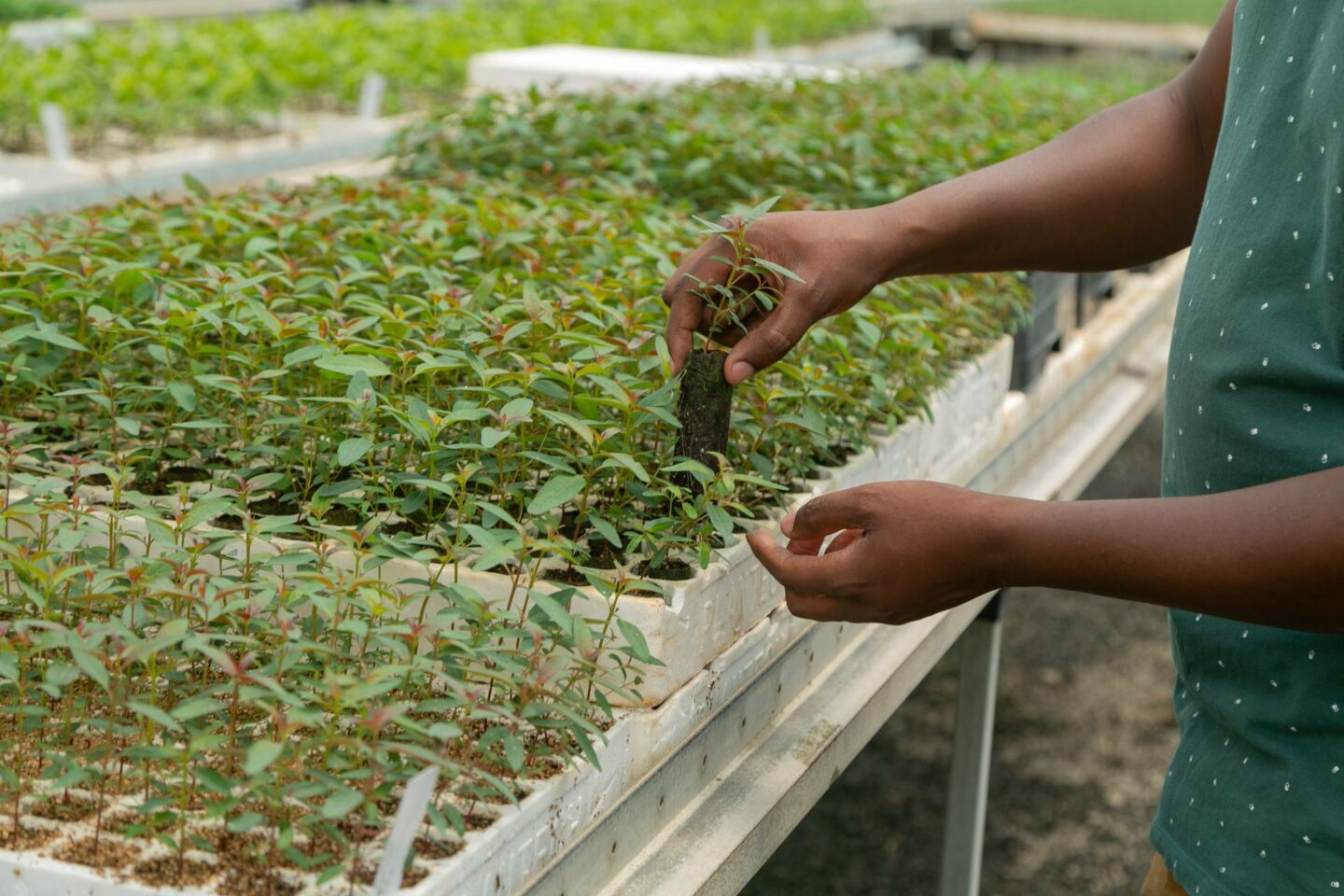
with Elizabeth Mungai and Rory Mack
The Root of the Problem
Two of the biggest issues facing East African forestry today are the low quality of wood, and the low rate at which trees grow. Productivity in the region hovers at an average of 14m3 per hectare, falling well short of a potential 20m3 for smallholder farmers, and 30m3 for large-scale growers. After years of working in Commercial Forestry, Gatsby Africa found that the quality and productivity of East African planted forests continue to be held back by the quality of the planting materials used by growers. Recognising the impact of access to quality seedlings for the rest of the sector, we began by working with several nurseries in 2019.
Growing Together
In August 2019, Gatsby Africa invited several nurseries on an exposure visit to South Africa. The right quality seedlings existed, and we wanted to find a way of encouraging their uptake across the sector more widely. Often this involves asking nurseries to take a risk, spending more money on materials and technology, when the market for higher value seedlings was relatively nascent.
Our mission was to show nurseries what was possible, both in terms of securing high quality improved germplasm bred with market related wood properties in mind, and producing high-quality seedlings, for sale into a diverse market.
Elad Bouton, Managing Director of a horticultural business called Plantech, with a large modern nursery located in Naivasha, Kenya, was among the group who travelled to South Africa with us. At the time, Plantech’s focus was vegetables, fruit, and flowers. Forestry wasn’t on their radar but that changed once the opportunity became clear.
We began collaborating with Plantech in early 2021, supporting the importation of improved 4th generation Eucalyptus seed, which would likely improve wood properties, growth and tree form. We worked to produce 5000 seedlings, with a view to test:
- The cost of producing high-quality seedlings
- The logistics of distributing the seedlings to dispersed smallholders
- The growth, survival and health of resulting trees
The results showed a marked difference, highlighting the potential of innovation within the sector. Typical for seedlings to mature after twelve weeks, the pilot seedlings matured after eight. And while you can expect up to half of seedlings from roadside nurseries to perish after planting, 93% of pilot seedlings survived.
The one downside was cost. The pilot produced seedlings at Ksh25 against the Ksh15 prevailing prices. However, with economies of scale, Plantech began working to reduce this.
Commercial production
With cautious optimism, Plantech entered commercial production. Gatsby supported in several ways.
First, by co-funding a new production technique – utilising an ‘Ellepot machine’. Instead of growing seedlings in plastic bags with soil dug from the earth, or conventional plastic trays with inserts, Ellepot allowed Plantech to grow seedlings in paper sleeves, utilizing soil less media and thereby producing a superior root system. This results in more resilient seedlings able to better contend with climate change weather issues, The seedlings being lighter in weight than soil-based systems also allows for much lower transport costs to buyers and therefore indirectly reducing CO2 emissions. Second, Gatsby also worked with Plantech to commission an expert review of Plantech’s nursery forestry production methods, exploring any areas where new techniques might result in better outcomes.
The uptake of innovative plant production technologies resulting in quality seedlings allowed Gatsby to connect Plantech with The New Forests Company (NFC), a large forestry company with plantations in Uganda and Tanzania. NFC placed an order for 150,000 pine seedlings from improved seed in early 2022.
Feedback was incredibly positive. The pine seedlings survival rates after planting were excellent, and subsequent growth that was observed exceeded that of previous local seedlings planted. Even with a dry period post planting that would have normally set locally produced seedlings back and caused mortality.
Innovation has a role to play in every part of the commercial forestry sector. For seedlings, Plantech has shown that a few changes can have a profound impact on the quality, resilience, and commercial viability of planted forests. We are excited to continue to work with growers and nurseries across the region to capitalise on this opportunity. To find out more, please reach out to us on LinkedIn, or email.
